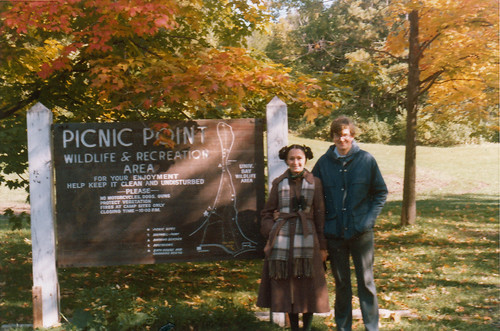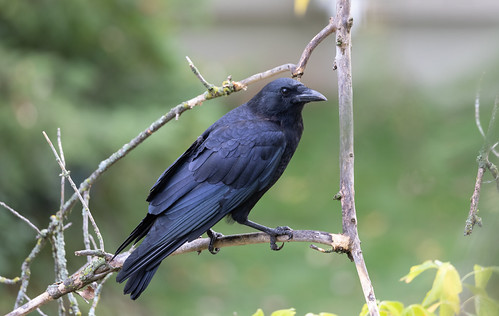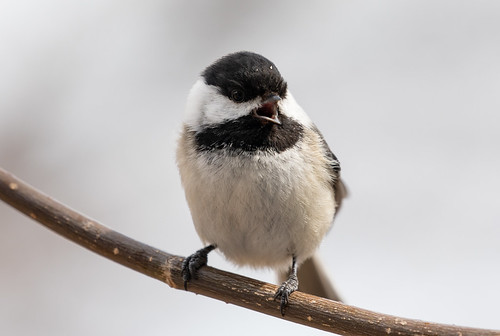Last year when the Covid-19 pandemic was starting to change life as we know it, the national media focused a lot on how so many people were suddenly paying attention to nature, often for the first time in their lives. I started hearing from a lot of people who were starting to watch birds. With the sudden drop in traffic noise right at the time of year when birds are singing most, it was small wonder so many people were paying attention to birds.
I love to travel and certainly missed going to cool places to see birds that I just can’t see on Peabody Street, but I’ve still thoroughly enjoyed the birding I’ve done since 2020 began. I picked up several new species for my yard list, but even cooler, I got some lovely recordings and photos of some of my favorite birds—something I hadn’t focused on in my own backyard before.
I’m thinking about how much the pandemic actually enriched my own birding because on October 27, Ethan Freedman wrote an article in Slate magazine titled, “The Pandemic Was the Perfect Time to Bird. Except for Me,” beginning, “While my hobby went mainstream, I couldn’t find joy in it anymore.”
Freedman, a graduate student, lives in D.C. and wrote, “Without the promise of a toucan or a biblical torrent of shorebirds, what was the rush to go see some sparrows I’d seen a thousand times before?” He talked about his early magical days of birding:
I’d spot a bird, yellow on its front, black around the eyes, small, jumpy, and flip through the pages to find a match: common yellowthroat! I’d look at the bird, whose name I now knew, and marvel that it had always been right in front of me—common yellowthroats live in grasslands and forests across North America—and I’d never known it.
But after a while, seeing a common yellowthroat started to feel a little mundane. They are, as the name implies, quite common! I craved that initial feeling of a new species, that shock of wonder—it’s infectious. So, as I started to run out of new species to see around my neighborhood, my birding became less leisurely backyard pastime and more thrill-seeking adventure sport.
Freedman made one nasty ageist comment about birding being “an activity that is typically associated with aging boomers.” It’s possible that my own personal status as an aging boomer contributed to my contentedness with backyard birding, but I think two more important things were at play. First, even though I was stuck in the same place, I was doing new and exciting things by focusing on building up my recordings and photographs of those common birds.
And second, as much as I love both traveling and getting lifers, I also like doing, seeing, and hearing the same things over and over. For example, when I buy Ben and Jerry’s ice cream, I always get Cherry Garcia. There may be other flavors that taste as good, but why experiment when I know for a fact that Cherry Garcia is perfect? When I’m tired or sick, I always turn to tried and true novels I’ve read before or the same romantic comedies I’ve seen many times rather than try anything new. Even when I travel, I love returning to the same spots over and over. This is the way I’ve always been—it has nothing to do with my advancing age. When I was in my acquisitive twenties, I went afield birding every weekend. But I spent every weekday morning every spring birding at a single spot walking distance from my apartment in Madison, Wisconsin—Picnic Point. Knowing this one lovely park so intimately improved my birding skills and gave me much more understanding of the shape of avian seasonal movements. Young birders now use the word "patch" to describe the places they love to bird over and over again, and when talking about taking actions against climate change, act as if they were the ones who discovered the concept.
 |
So I feel sad that Ethan Freedman lost his passion for birding while he was stuck home during the pandemic. I suspect that as more and more activities open up again, a lot of people who got excited about backyard birds during the pandemic will find themselves losing interest as they return to normal life. That’s okay—we all have different tastes and passions, which is exactly why Ben and Jerry’s makes so many different flavors.
But I hope that Freedman and new birders who go back to their old interests never lose their awareness of the importance of conservation and the clean air and water that birds, and all the rest of us, need. I also hope that everyone who returns to traveling for birding is strict with themselves about their carbon footprint, taking measures to offset their travel, whether it's local commuting or long-distance adventuring, with other ways to reduce their personal impact on climate change. We may all be very different people, but we're still all in this together.


